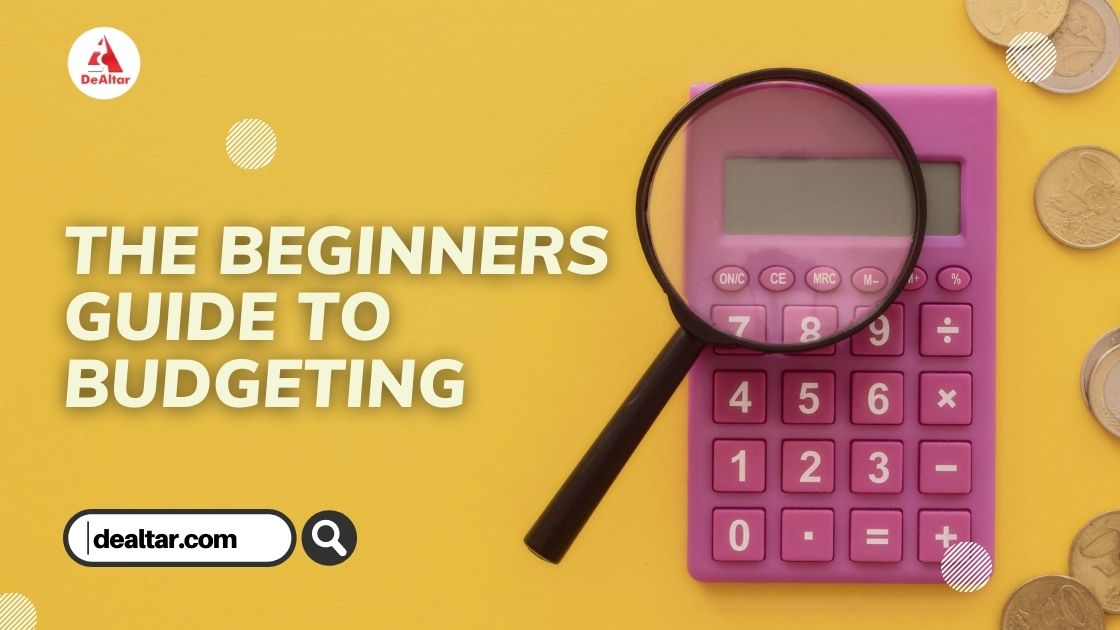A Beginner’s Guide to Budgeting
It is interesting how we learn several skills growing up, but Financial Intelligence is not considered an essential skill to learn. When I started learning about financial principles recently, I got incredibly defensive regarding my spending habit, primarily because I knew that I was guilty of defaulting those principles in my spending.
The problem with not learning and taking intentional steps about our finances is that we do not know how to make good decisions when spending. If you don’t have a plan, it is easy for money to slip through your fingers, and you wonder where it went.
This article will share what I have recently learned about Budgeting, which will help you.
I love the simple definition that says;
Budgeting is the process of creating a spending plan for your money. The spending plan is called a budget, and creating this plan allows you to determine in advance whether you will have enough money to do the things you need to do or would like to do. – My Money Coach
Importance of Budgeting
Living on a budget is an essential part of Financial Intelligence. Let’s see some importance of Budgeting.
Budgeting helps manage your spending and track expenses:
Spending without a budget is elementary. You quickly spend beyond your means, especially on expenses that are considered negligible.
“Beware of little expenses; a small leak will sink a great ship” – Benjamin Franklin.
The seemingly insignificant unplanned expenses create a massive cash outflow and translate to a financial mess. Putting a plan to what you will spend monthly helps you control your spending habits and stay within your means. You can also easily track how your money was spent to make better financial decisions in the future.
Budgeting helps you save more:
With Budgeting, you reduce misspending, thereby increasing the money you can save. Savings come in handy in case of a financial emergency. It is like preparing ahead of any surprise that might come your way, and that is why living on a budget is a lifesaver.
Budgeting helps you avoid or get out of debt:
Your budget is like a financial mirror that you look into before making financial decisions. From your budget, you can already see what you can afford and what you can’t. You can decide if you need to save up for a particular expense or pay upfront. Budgeting saves you from having to refund what you spent before you could afford it from your income.
Budgeting helps you organise your finances:
Between the bills and payments for several things, your finances can get messy. Someone once said, ‘it is easier to keep clean than to make clean’ Trying to reorganise your finances after haywire is much more complex than organising it. Budgeting helps you keep your finances in order.
Why people do not budget
There are a few reasons I have identified as to why we avoid planning for our finances.
- Time-consuming: Many People complain about how much time it takes to sit down and plan out their finances, and this is fair. Getting past this is the first step to putting your finances in order. You can try writing your expenses down as you spend and have a glance later to see how you’re doing. Just find what works for you.
- Not enough to budget on: Another common reason people avoid Budgeting is the scary realisation that you don’t have enough cash to cover all you need. I have been here several times. So, I glide through my spending and hope that the cash will magically go round somehow. Budgeting can help you identify the expenses to cut down on to accommodate others. It generally helps you make better decisions with your money.
- Financial background: You are a product of the financial decisions you grew up to see. My parents are not Salary earners, so we don’t plan so much on the money. We spend as the money comes in, which affected my financial decisions growing up, especially in Budgeting. If you grew up in a family like mine, Budgeting might be tricky for you.
- Feeling of deprivation: Like you, I wouldn’t say I like the restriction with Budgeting. I want to be able to spend my money at will, but that is one of the fastest ways to a financial crisis.
How to create a budget
These simple steps have helped me in creating a budget for my monthly spending.
- Talk a walk down your financial history: Go through your bank records, receipts, and any other document you can find to track how your expenses have been in at least three months. This will help you identify your financial priorities and where to make adjustments.
- Calculate your Net Income: Your net income is the money coming in after all withholdings such as taxes and benefits have been deducted. Your net income is the figure you should use when creating your budget.
- Make a list of your monthly expenses: Write down a list of all the expenses you expect to have during the month. Beyond just spending on things, make provisions for savings, debt repayment, and unplanned expenses as part of your budget. If your expenses are more than your net income, you need to find an area to cut down on or push an expense to the following month.
- Set Financial Goals: Since you have identified your income and spending, you can start to see where you have money leftover or cut back so that you have money to put toward your goals. Set long and short-term financial goals and start making provisions for them within your monthly budget.
- Follow through with your budget: Review your budget regularly to ensure you are on track. Make changes where necessary but stay consistent with the principle of Budgeting.

